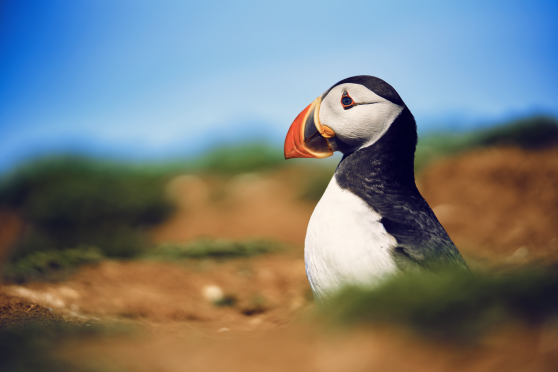
Over the years, Sir David Attenborough’s documentaries have provided some of the biggest water cooler TV moments.
Millions tuned in when the likes of mid-2000s series Planet Earth brought the world’s most awe-inspiring natural wonders into our living rooms.
Now though, with on demand streaming overtaking linear TV, there’s a different experience surrounding the blockbuster shows, and Alastair Fothergill hopes to harness it.
The producer and director of the iconic series, as well as Frozen Planet and The Blue Planet, is taking the most recent, Wild Isles, on tour to continue its conservation campaign and take audiences on a journey through the UK’s most curious and breathtaking landscapes.
Wild Isles
“My kids never watch broadcast TV,” he said. “You don’t get moments like when Planet Earth came out, 13 million people watched it and I’d get on the bus on Monday and I’d hear lots of people talking about the show last night.
“The boundary between television, online and multimedia is gone, which is why we could do a really good campaign, people would click from iPlayer to it. It’s a different world, but I think it’s probably better.
“I’m very proud that we moved the dial in the understanding of British nature. I’m really excited about the tour, keeping the whole thing going and the message out there.
“Even if you’ve seen every frame of the series, it’ll be a much more cinematic experience, with lots of explanation on how it was made, the background history working with David and also the amazing Saving Our Wild Isles campaign we did with the RSPB, World Wildlife Fund UK and the National Trust.”
Wild Isles, which aired last year, helped provide a balance between alerting people to issues facing the natural world due to climate change, but also causes for optimism.
While many watching might feel helpless to make a difference, Alastair hopes it can show what we can do for our own back yard.
“In the 90s working with David, there was some criticism we were showing the planet with rose-tinted spectacles and that he should be more outspoken environmentally,” he said.
“I remember talking to him and he said that people will never care about things they don’t know about and we still have an important role to show the beauty of nature.
“That was vital in Wild Isles because many didn’t realise how globally important we are for nature.”
Highlighting UK nature
The series highlights things like the UK having more ancient oak trees than the whole of Europe, and almost 70% of the world’s gannets, many of which breed in Scotland.
“We really wanted to say to people that it’s not just starlings and wood pigeons, we have a very rich nature,” Alastair added. “At the same time, we’re in the bottom 10% of biodiversity depleted countries in the world.
“When you sit down on a Sunday evening you don’t want to have a finger wagging at you. We were careful not to do that and just say, this is really precious, really special.
“You have the power to make change. We felt strongly that we need to empower people and give them answers and solutions because there’s no doubt that we can turn it around.
“We need to act quickly, but my basic message is a very positive one and I genuinely believe in it.”
The series looked at a number of regeneration projects across Scotland and beyond, and also looks to have make change at a government level, with the UK and Scottish governments banning fishing for sandeels, which many seabirds rely on to feed their chicks.
“I was told that was directly because the Secretary of State for the Environment saw the piece that David Attenborough did at the end of our first episode talking about the challenges that our seabirds were facing,” Alastair said.
“We’re globally important for sea birds, particularly Scotland where they’re amazing. We were so delighted.
“Sometimes you think about television, is it just entertaining people, is it ever going to make any change? That was a wonderful example of real change.”
Incredible experiences
Alastair had many incredible experiences throughout filming for Wild Isles, which took many years, the use of the latest camera technology, and a lot of patience.
“A lot of it was filmed in Scotland, because there’s some amazing projects of regeneration going on which are very inspiring,” he said.
“I was lucky enough to join the shoot we did at Loch Gruinart RSPB reserve on Islay to film a behaviour that had never been filmed before.
“We had sea eagles, 50% bigger than golden eagles, taking barnacle geese on the wing.
“The spectacle of thousands of geese arriving on the estuary was so beautiful. Then to see these massive birds of prey grabbing them in the air…
“Even for an eagle of that size, the goose is so heavy, so they sort of spin round in the air until the eagle can stabilize it. That was unbelievably exciting.
“I also joined the Shetland shoots. We went back three consecutive Julys to get the final sequence which lasts six-and-a-half minutes. One of the wonderful things there is if an orca goes past, the locals put it on an amazing WhatsApp group and we used that to help us.
“The lovely, friendly community in Shetland are very proud of their orca. That was a great experience.
“The other special experience for me was filming the black grouse lekking at Glenn Feshie in the Cairngorms. You have to get in the hide before dawn and they start this amazing calling just before first light. That was very, very special.”
Attenborough inspiration
Alastair was inspired into the natural world by Attenborough’s 1979 series Life on Earth.
He’s since gone on to collaborate with the legendary broadcaster across some of the world’s most-watched nature programmes.
“I remember being really gripped by Life on Earth. It was like this amazing soap opera, this extraordinary story of evolution. All my colleagues and friends in the industry today were inspired by different work David’s done.
“When I did Blue Planet with him, I remember Southampton University, which has a very famous marine biology course saying the number of applicants had doubled.
“I’ve been very privileged to work with him over the years and Wild Isles was amazing. He’s stopped travelling internationally in the past few years , but I told him I’d love him to not just narrate but appear on camera introducing every episode.
“He jumped at it and we had a wonderful time.”
The best part of the job, Alastair says, is combining his passion for nature with the creative side of writing scripts and adding soundtracks.
He also takes a great sense of responsibility in using his position to help enact change.
“Climate change and biodiversity loss are the greatest challenge that mankind’s ever faced,” he said. “I genuinely fear for my grandchildren, but on the optimistic side of things, there is no doubt we have the technology today to solve climate change.
“When I started conservation, it was like crying slightly in the wilderness, but now I think people realise it’s not just about saving pandas and elephants, it’s now about saving humanity.
“I feel immensely responsible and very pleased that I’m in a position to help, among others, to communicate the challenges.”
Wild Isles Live is at Edinburgh’s Usher Hall, Thursday May 16. Tickets at wildisleslive.org

Enjoy the convenience of having The Sunday Post delivered as a digital ePaper straight to your smartphone, tablet or computer.
Subscribe for only £5.49 a month and enjoy all the benefits of the printed paper as a digital replica.
Subscribe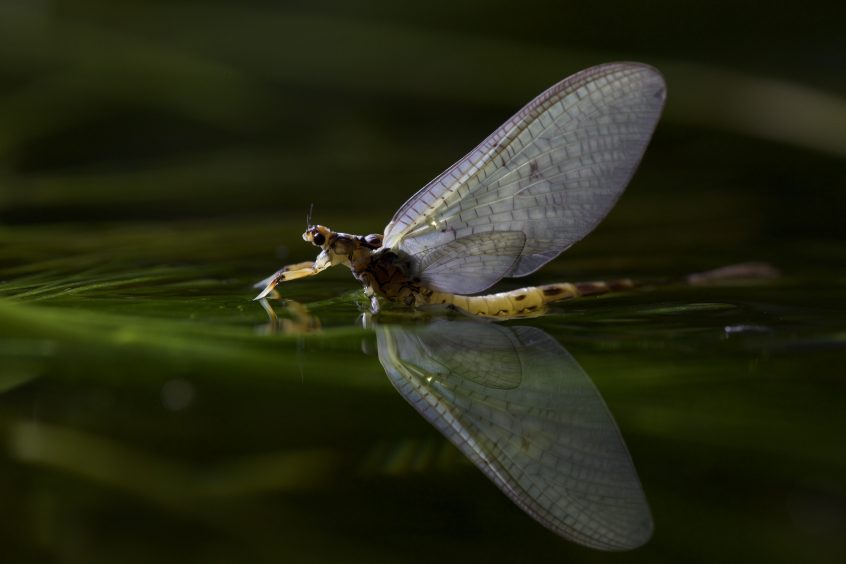 © Supplied
© Supplied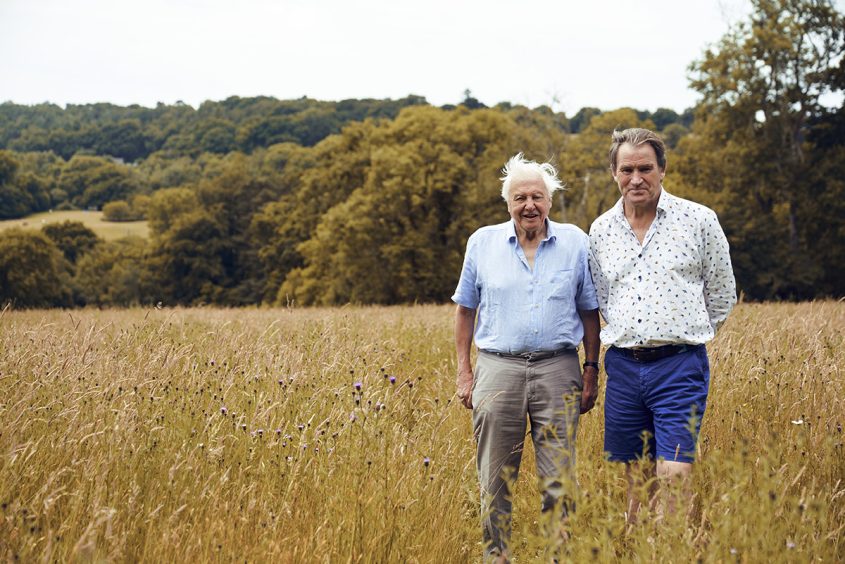 © Silverback Films
© Silverback Films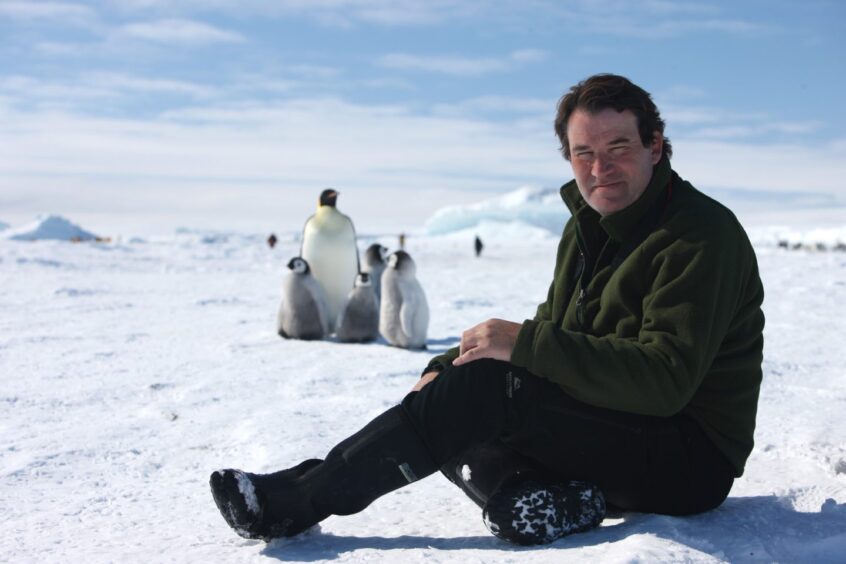 © Supplied
© Supplied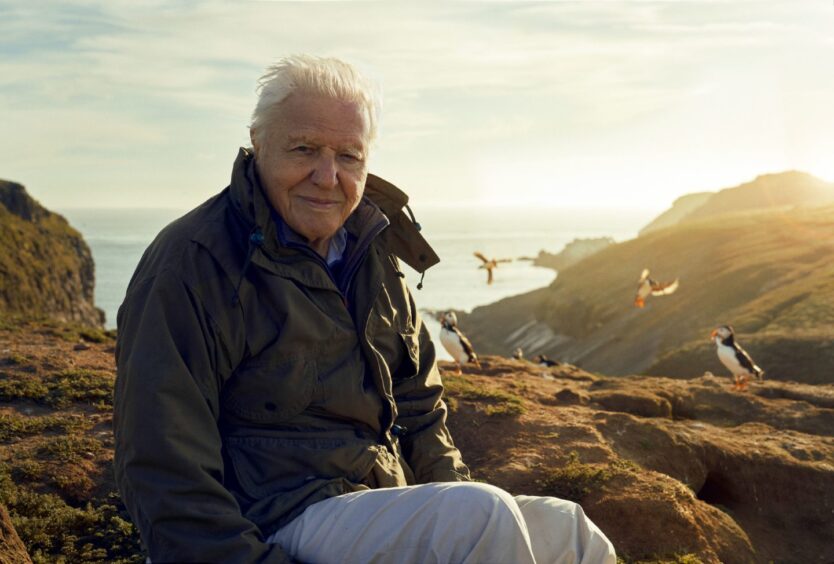 © BBC/Silverback Films
© BBC/Silverback Films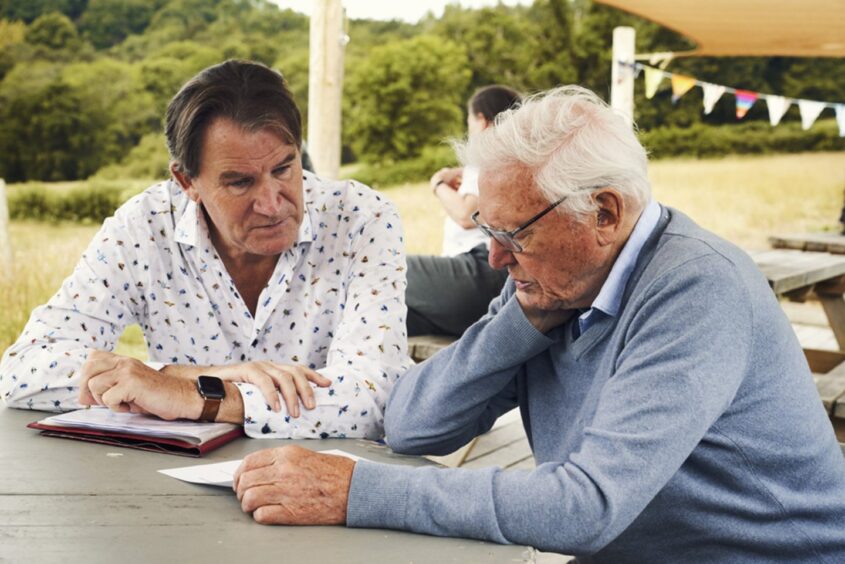 © Silverback Films
© Silverback Films